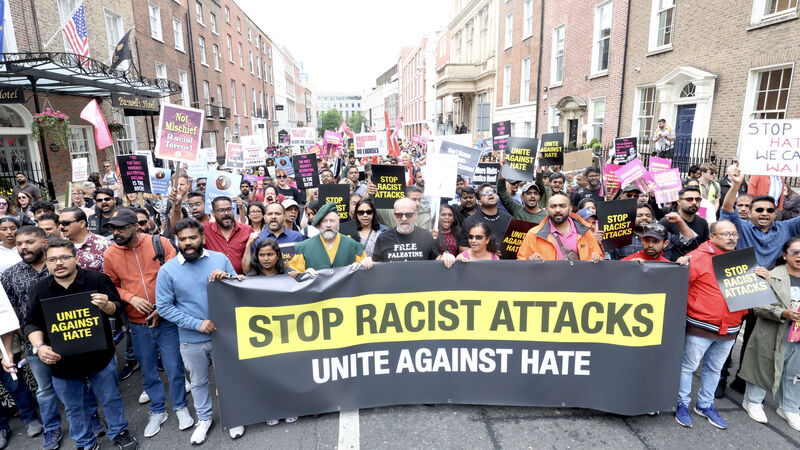Paul Hosford: Anti-immigrant rhetoric is fuelling racist violence against Indian people in Ireland

Protesters holding placards saying stop the hate as they march to the Dáil to protest against a brutal assault on an Indian national in Tallaght. The event was organised by members of the migrant community in Ireland. Picture: Leah Farrell
Last week, an embassy of India issued a stark warning.
"There has been an increase in the instances of physical attacks reported against Indian citizens recently. The Embassy is in touch with the authorities concerned in this regard. At the same time, all Indian citizens are advised to take reasonable precautions for their personal security and avoid deserted areas, especially in odd hours."












